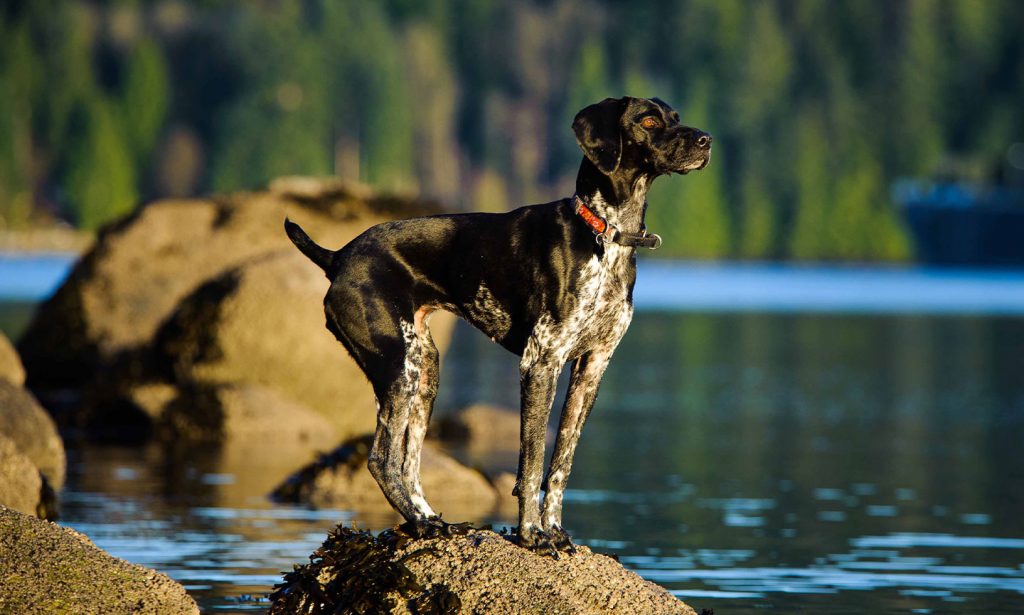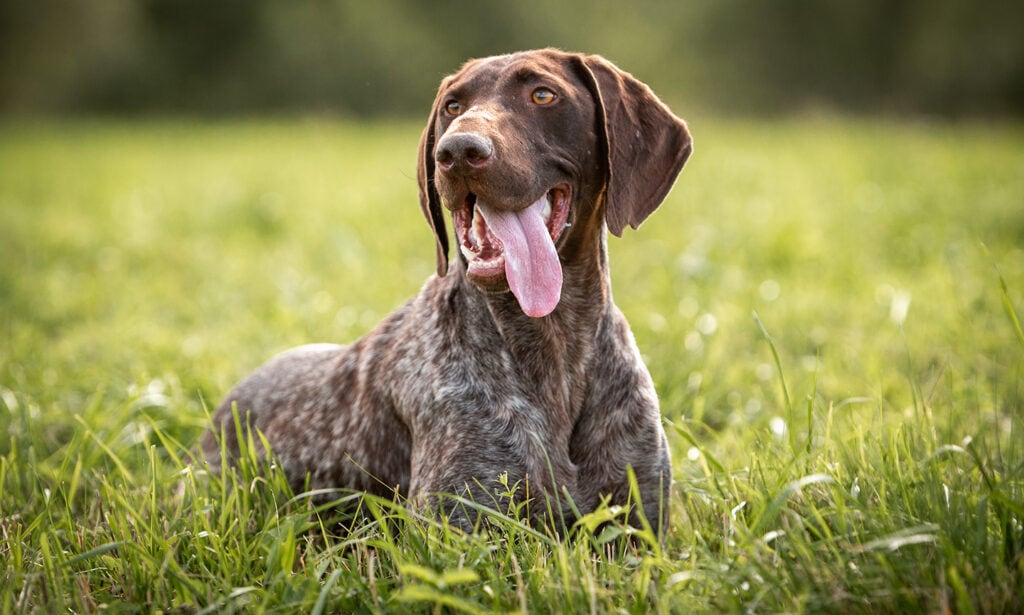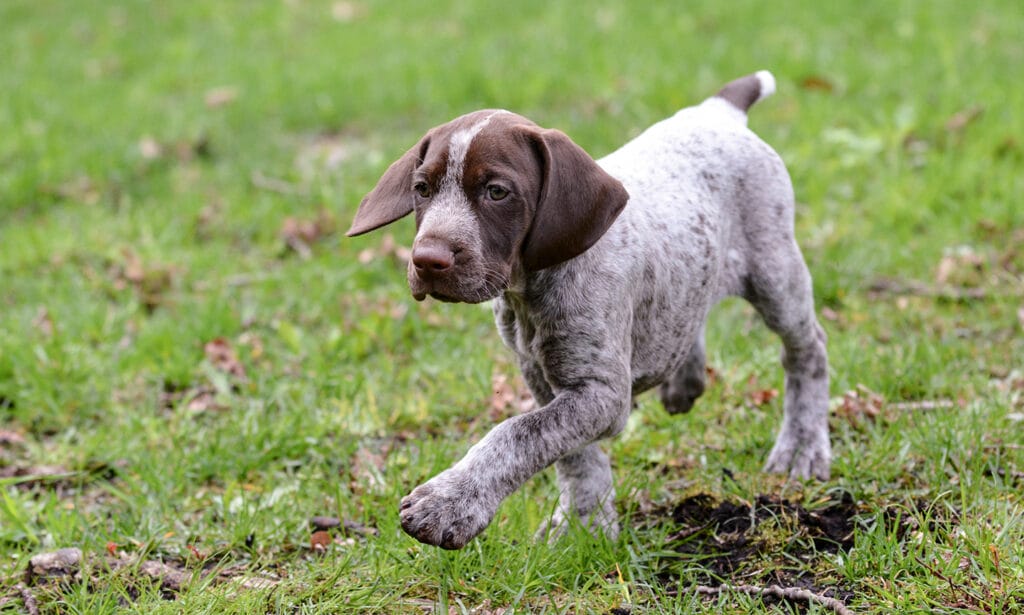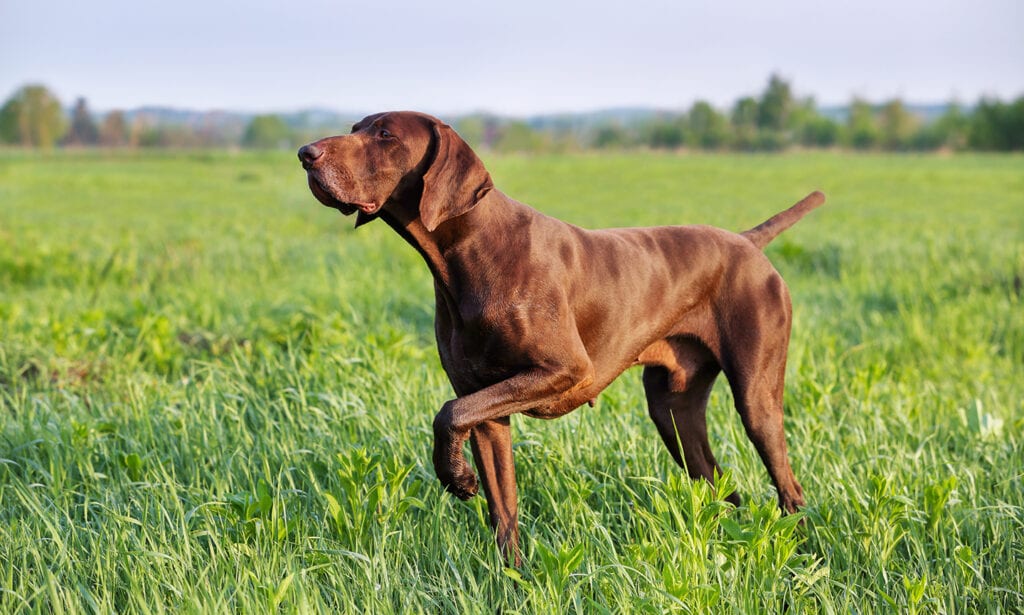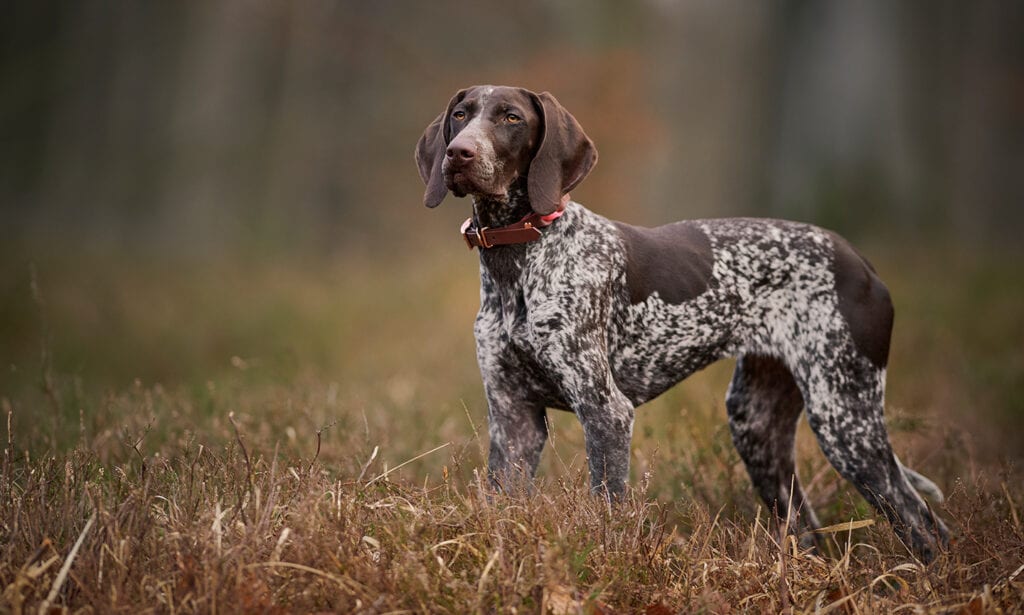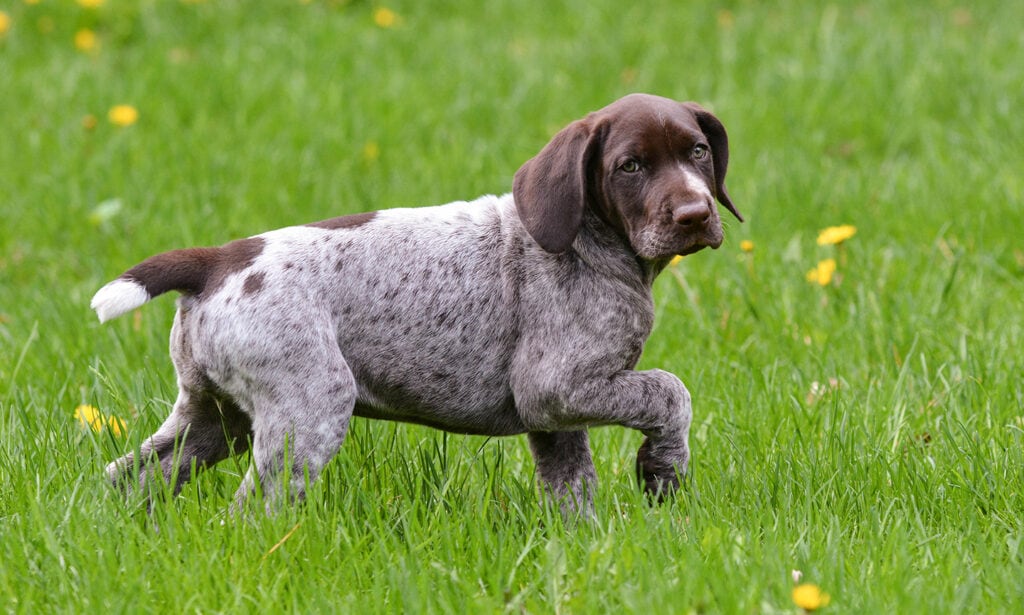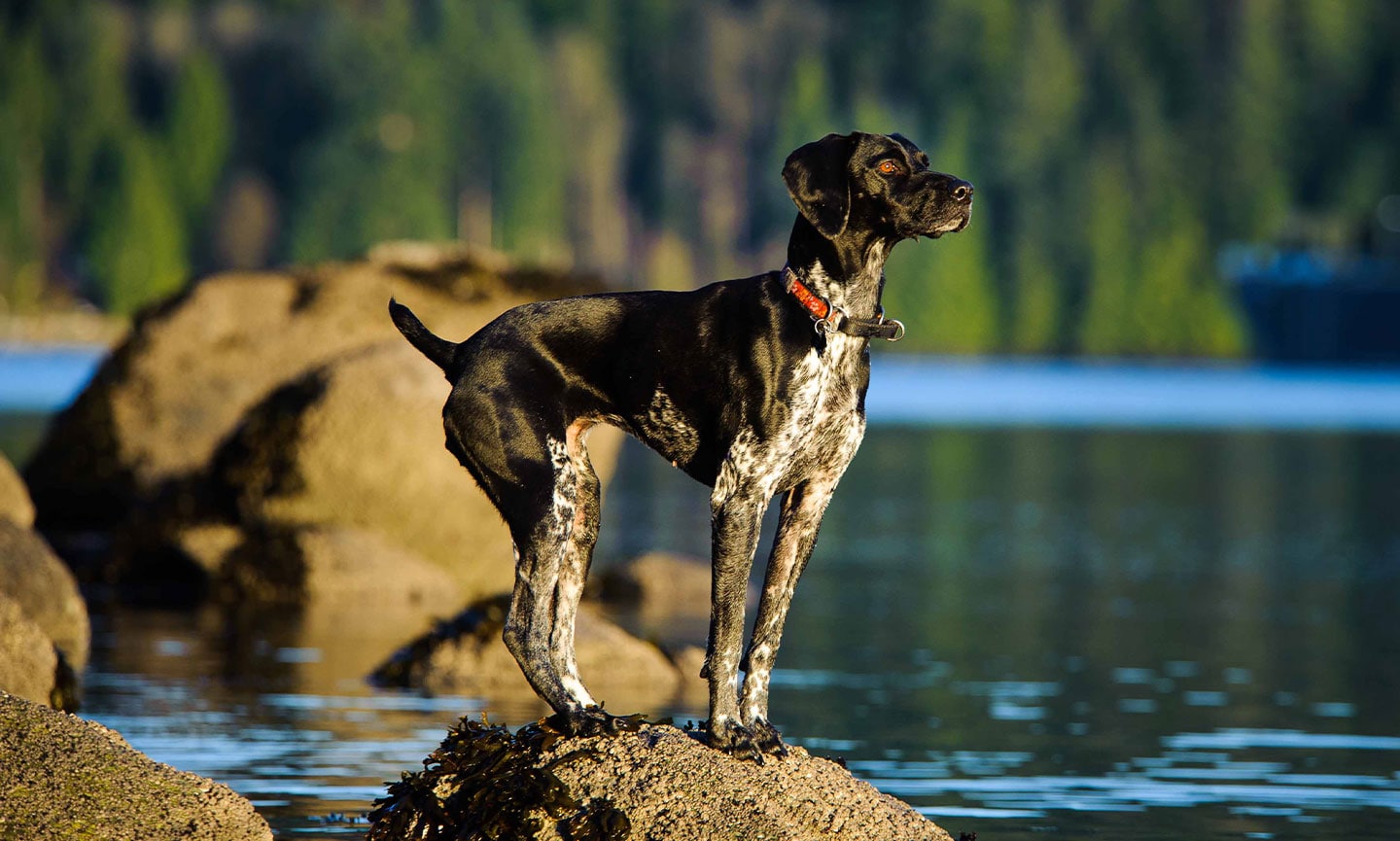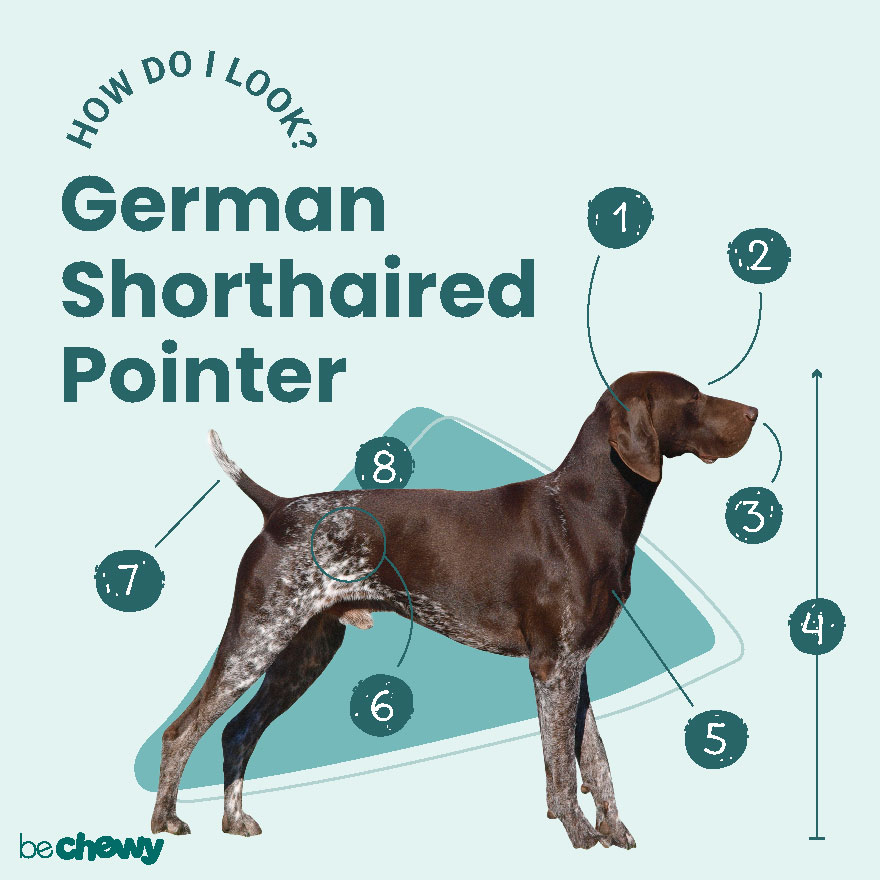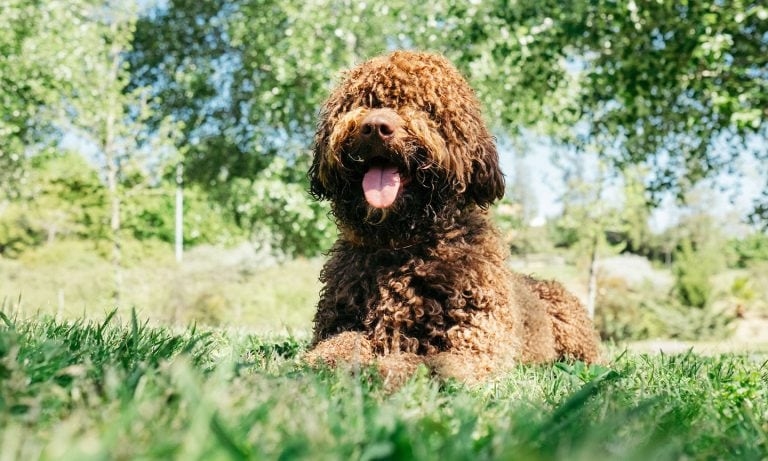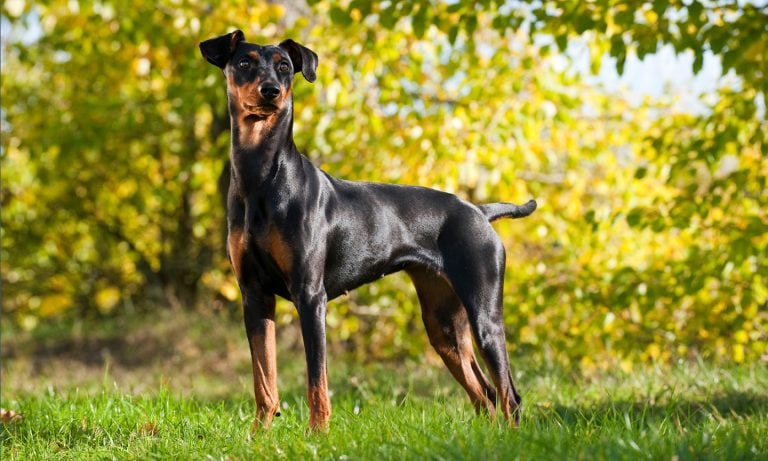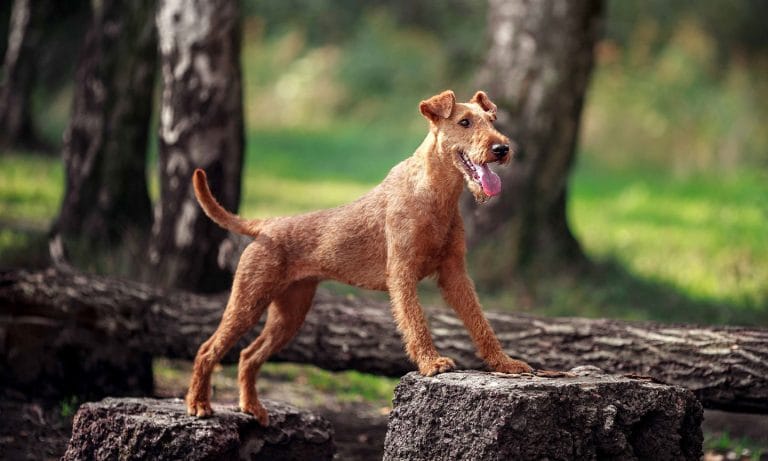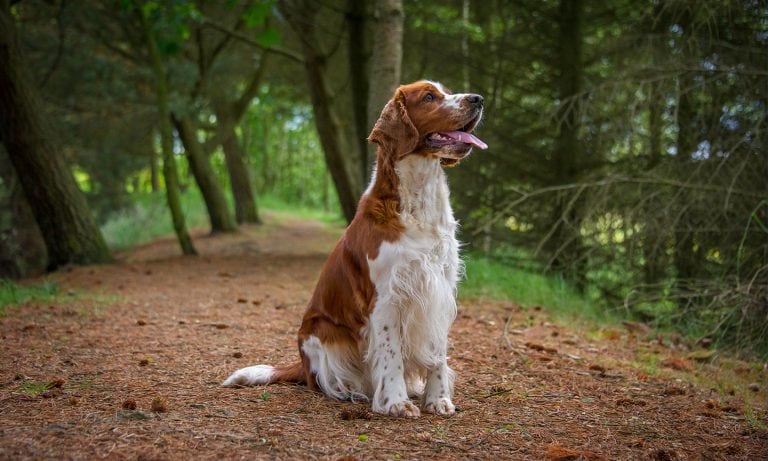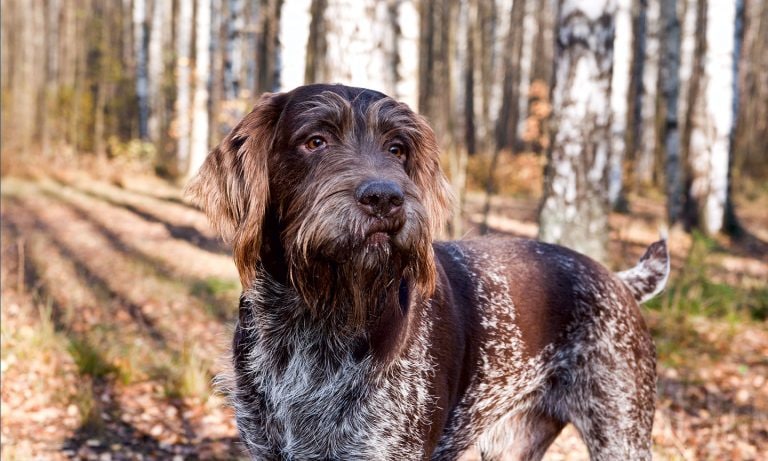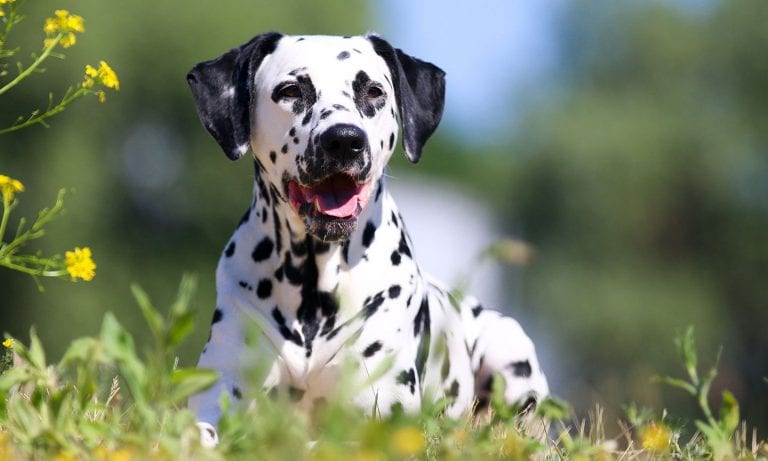The German Shorthaired Pointer (GSP) thinks there’s only one thing better than being on the go—and that’s being on the go 24/7/365. So, if you like to sleep in or spend the afternoon reading, you’ll need to look elsewhere for your canine soulmate. But if you love exploring your local hiking trails, daily jogs through your neighborhood and the thrill of constant outdoor activity, you won’t find a more eager canine companion than the GSP. Hey, if you hurry, they might just let you join them on their next adventure.
Breed Snapshot
Temperament:
High-energySometimes IntenseLoyalCoat Color:
BlackBlack And WhiteBlack RoanLiverLiver And WhiteLiver RoanWhite And Liver
Best For
In search of a canine hiking buddy? Look no further than the loyal, loving German Shorthaired Pointer. These high-energy, hard-working pups pair well with experienced pet parents who can match their activity level and provide plenty of training, exercise and playtime.
German Shorthaired Pointer Temperament
The German Shorthaired Pointer breed is a loyal, loving dog who wants to hang out with their pet parent. These dogs enjoy working, and you’ll find they’re alert dogs who keep an eye—and a very strong nose—on everything.
Their temperament is easygoing, and they can be friendly with new people. Socialization will help bring out more friendly qualities when meeting new people. German Shorthaired Pointers are great with kids and other dogs. But these dogs were bred to hunt, so they don’t mix well with smaller pets, like a rabbit or cat.
These high-energy pups love to please their people. However, they’re easily distracted by what they see and smell, and that may make training a little more difficult. These are hard-working pups who love it when you give them something to do. You can fulfill their type-A needs through playing games like fetch or through dog sports like agility.
How to Care for a German Shorthaired Pointer
German Shorthaired Pointers are generally easy dogs to care for. They’re easy to groom, their shedding level is manageable, and they’re smart. You’ll be spending the bulk of your time in training and exercise, which gives you fun ways to bond with your pup.
German Shorthaired Pointer Health
German Shorthaired Pointer (GSP) dogs are usually healthy and have an average lifespan of 10-12 years. That said, any dog can develop the occasional health problem, and GSPs are no different. A few of the more common health issues that can affect your German Shorthaired Pointer include:
- Bloat/Gastric Dilatation-Volvulus (GDV): Bloat is a life-threatening condition that can occur very quickly and is always an emergency situation. Also known as Gastric Dilatation-Volvulus, the stomach fills with gas and twists on itself. Signs include unproductive retching, bloating, excessive drooling and abdominal pain. Techniques that may prevent GDV include feeding your dog smaller meals more frequently throughout the day with a slow feeding bowl and waiting to exercise for one hour before and after meals. Your vet can also perform a surgery that pins the stomach to the side of the body to help prevent it.
- Hip and Elbow Dysplasia: GSPs are prone to hip and elbow dysplasia—painful conditions that happen when these joints are not formed properly and rub, causing the dog pain. In most cases, lameness is the result. Treatments include weight management, exercise restriction, medications, joint supplements, physical therapy and, in severe cases, surgery.
- Hypothyroidism: This is an autoimmune condition that causes an underactive thyroid gland, which results in a lower metabolism. This may lead to weight gain, hair loss, lethargy and other symptoms. Treatment includes a daily hormone replacement pill.
- Von Willebrand’s Disease: This is a genetic condition that prevents proper blood clotting, resulting in excess bleeding. Management of the disease includes adjusting the dog’s activity to avoid injury and blood transfusions, if needed.
German Shorthaired Pointer History
The German Shorthaired Pointer’s place of origin is Germany (no surprise there), where the breed was developed in the 18th and 19th centuries. In the early days of their history, breeders wanted a brilliant, versatile hunting dog who could do it all—point, flush and retrieve. This idea appealed to hunters who couldn’t keep and care for multiple dogs to fulfill each purpose. Early breeders used several breeds (such as the German Bird Dog, the Spanish Pointer and the English Pointer) to fulfill that goal, and the German Shorthaired Pointer was developed. Naturally, the impressively useful GSP was widely appealing.
The breed came to the United States in the 1920s, and the first litter of German Shorthaired Pointers born in the US arrived in 1925. The American Kennel Club (AKC) recognized the breed in the 1930s, and the German Shorthaired Pointer Club of America was established shortly thereafter. Today, the breed’s popularity is firmly established in the US, and the German Shorthaired Pointer ranks No. 10 on the AKC’s list of most popular breeds.
So, where is the best place to find German Shorthaired Pointer puppies? You can find a list of reputable breeders on the AKC’s website. What’s the average German Shorthaired Pointer price? Depending on the breeder, expect to spend $800-$2,000 for a pup. For that price, you usually get a dog who’s been screened for health and temperament issues, and they might even come with pedigree papers. You can also reach out to German Shorthaired Pointer rescue organizations to adopt or keep an eye out for the breed at your local animal shelter. Or, search Chewy’s database of adoptable dogs in your area.
FAQs
Do German Shorthaired Pointers shed?
German Shorthaired Pointers do shed, but they aren’t considered heavy shedders, thanks to their short coats. However, they do shed more in the spring and fall when they blow their coats.
How long do German Shorthaired Pointers live?
German Shorthaired Pointers typically live 10-12 years, although some dogs live into their teens. With the proper nutrition, exercise and vet visits, you can help your pup live a long and happy life.
Are German Shorthaired Pointers good family dogs?
Yes, German Shorthaired Pointers can be good family dogs. They’re affectionate, attentive and good with kids. They like people and family life and being in the center of activity.
How big do German Shorthaired Pointers get?
German Shorthaired Pointers don’t get too big; they’re a medium dog. They can get up to 25 inches tall at the shoulder and weigh up to 70 pounds.
What are the most common German Shorthaired Pointers mixes?
- German Shorthaired Pointer-Labrador Retriever mix
- German Shorthaired Pointer-American Pit Bull Terrier mix
- German Shorthaired Pointer-Poodle mix
- German Shorthaired Pointer-German Shepherd mix
- German Shorthaired Pointer-Weimaraner mix
Note: These are not purebred dogs but mixed breeds.
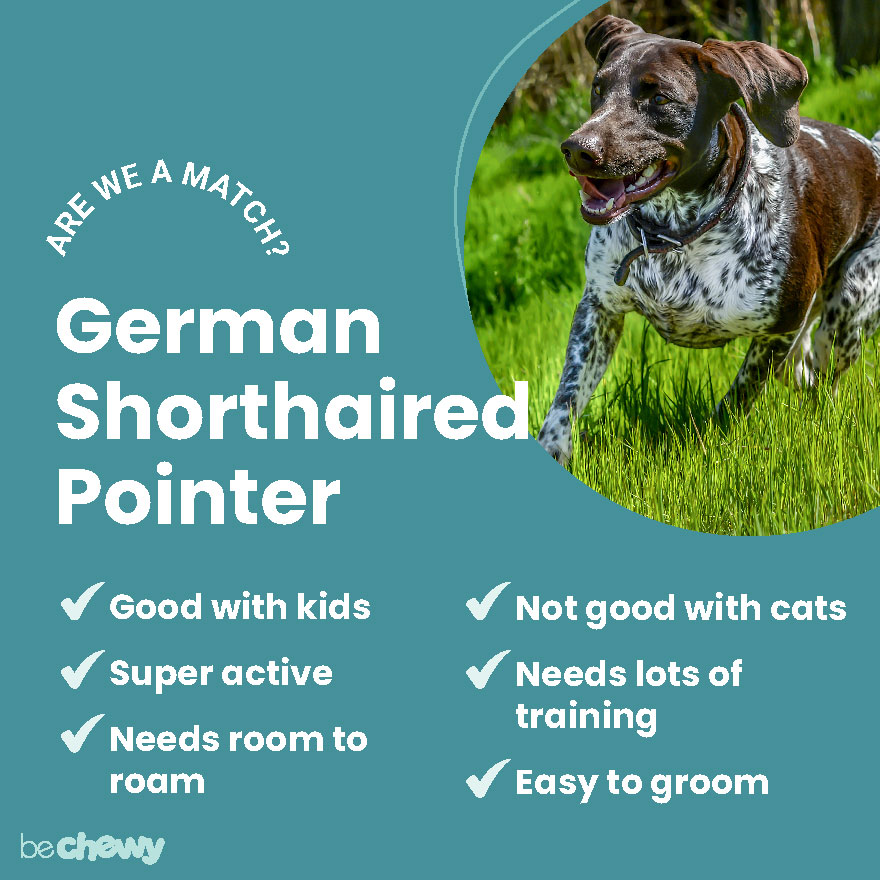
Top Takeaways
German Shorthaired Pointers are working dogs who want to do a good job for you. They may have a bit of an independent streak, but an experienced pup parent can help them overcome it. They love their families and do well with kids. These pups may be easy to groom, but you’ll spend the most of your time exercising and training them.
Expert input provided by veterinarian Dr. Ellen Kinzl, DVM, of Liberty Village Animal Hospital in Canada; and certified dog trainer Erin Magnani Topp, CPDT-KA, KPA CTP, owner of Topp Canine Solutions in Cambridge, Iowa.
Breed characteristic ratings provided by Dr. Sarah J. Wooten, DVM, CVJ, a veterinarian at Sheep Draw Veterinary Hospital in Greeley, Colorado; dog trainer and behavior consultant Irith Bloom, CPDT-KSA, CBCC-KA, CDBC, owner of The Sophisticated Dog, LLC, in Los Angeles; and certified animal behavior consultant Amy Shojai, CABC, in Sherman, Texas.
The health content was medically reviewed by Chewy vets.

Search for Adoptable German Shorthaired Pointers Near You
Top German Shorthaired Pointer Names
These are the top German Shorthaired Pointer names as chosen by Chewy's pet parents!
Female Names
- Luna
- Sadie
- Remi
- Willow
- Daisy
- Stella
- Lucy
- Piper
- Bella
- Ellie
Male Names
- Gunner
- Hank
- Ruger
- Cooper
- Moose
- Goose
- Boone
- Duke
- Tucker
- Finn
Share:
